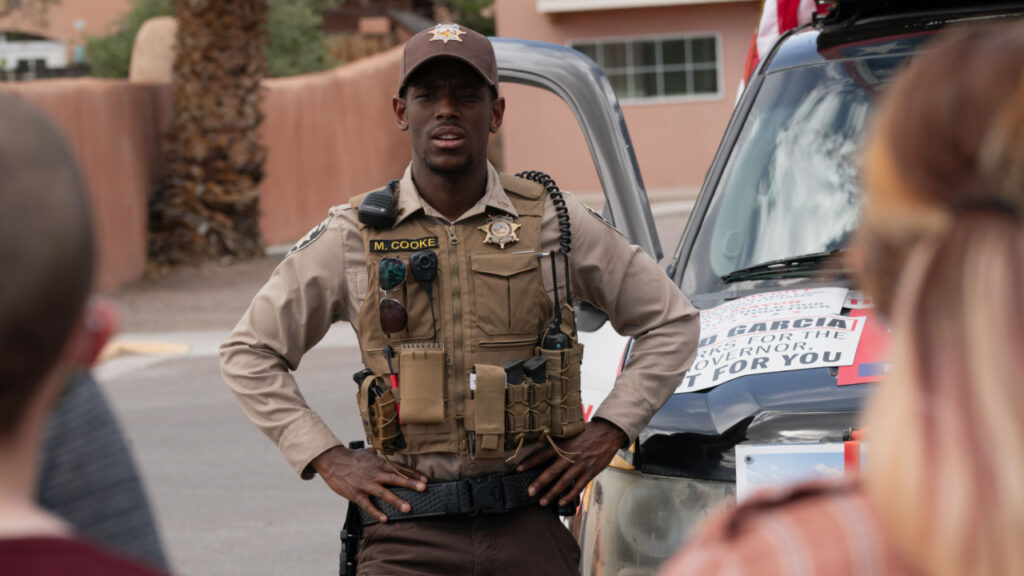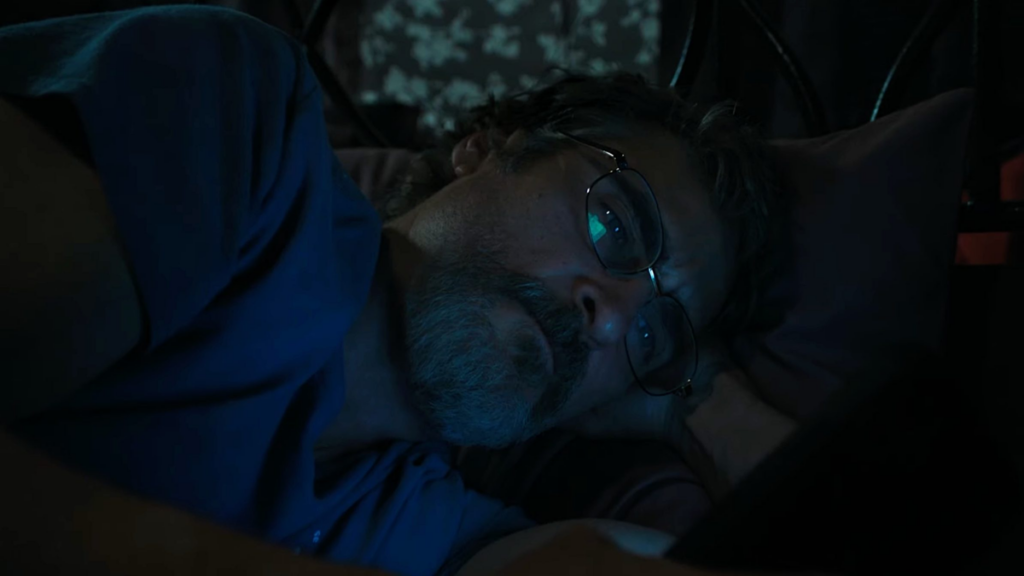Exit 8: The Endless Loop in the Modern Society
A man found himself stuck inside the passage to the subway exit on the way to work.


Ari Aster’s neo-Western film, Eddington, touches upon as many social-political discourses as possible: Covid-19, the Black Lives Matter movement, selection, conspiracy theories, sexual abuse, cults, borders, data centers, youths’ lives during the pandemic, gun violence, extremism, and the merge of media and politics.
The racial identities of the characters are directly and vocally addressed in the dialogues of the film. Being white, Hispanic, indigenous, or Black is an important factor defining the tension in social settings and impacting their actions. Most prominently, police officer Micheal was passively being centered in the discussion of BLM protests frequently as a Black man. He was framed as the murderer of the rival for the mayoral election, Ted Garcia, and his son at the end, with a manufactured racial motive.

Eddington is one of the most social media-heavy films ever, and only the ‘lost cam’ horror films can feature more screens. Not only do the characters constantly use phones and laptops, but also the webpages and interfaces frequently cover the full screen, including some websites and major social media: Facebook, Instagram, TikTok, and YouTube. Different usages of social media have become a vital aspect of characterization. The protagonist, Sheriff Joe Cross’s incompetence in understanding media also leads to his downfall. The first time we see Sarah, a young white girl who is an activist, is her dancing on TikTok about finishing reading a book, which is the introduction of her character. Later on, every time the media appears, it determines the direction of everyone’s movements. This film faces how media-infiltrated our daily lives are and how it is overbearing in a way that is interlocked with our identities.
We witnessed how Joe Cross’s evilness was brought out throughout the film. This character was overall emasculated and has been fighting to regain the feeling of control and power. His frustration and rage started from being forced to wear masks and escalated into failing the election campaign and murders. A series of impulsive attempts lead to an ultimate helplessness and loss of autonomy at the end, after he was paralyzed and became a puppet mayor.

The humor is hard to define in this film. The comedic elements aren’t delivered as being outwardly funny but accumulate the absurdity of its hyper-realism, or life itself. The omnipresent uncomfortableness consists of the never-ending debates, the failure of communication, and the helplessness of characters, becoming the horror of contemporary life.
The cinematography and sound design of Eddington are at the same level as Ari Aster’s previous films. The eerie sound space makes the awkwardness in conversations linger and amplifies the suspension. After Joe shot Ted and his son Eric, he spray-painted the graffiti on the wall to stage the scene, and the sound of spray-painting transitions to a car driving past the screen. This transition knocked the audience out of the mundane tone of the first half further and pushed them into the catharsis of the last part. In the opening scene, the mumbling of a homeless man and the industrial infrastructure among the local landscape at dawn echo with the ending, where the data center stands. In the end, the media won.
Support the writer and read more on the political aspect of Eddington as well as my personal viewing experience and primary reactions. (As the website is upgrading, we now use the old-school way to send out files manually. We’ll email you the bonus in 3-5 days. Thank you so much for your support.)
Related lists created by the same author
A man found himself stuck inside the passage to the subway exit on the way to work.
Related diversity category
‘Killers of the Flower Moon’ is preoccupied with plot and not on the greater struggle of the Osage.
Related Movie / TV / List / Topic
‘Barbie’ is an entertaining, meaningful piece of filmmaking with a heartfelt message.